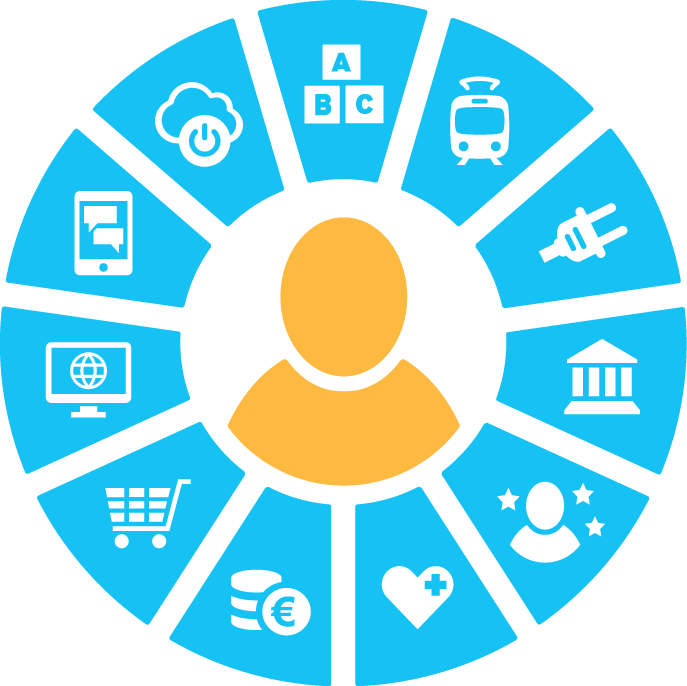The MyData-movement is a unique blend of international societal, business, technological, legal and governmental stakeholders grouped around a concept that positions the individual citizen as the central entity through which any data use should be ethically endorsed. Not only health data, but any kind of data. The 4th international conference held between 25-27 of September 2019 in Helsinki was a truly exemplary exhibit of the dynamic and pro-active interplay between the stakeholders, bringing together over 1000 people from over 40 countries. It is palpable that in Finland a remarkable blend exists of digital awareness, foresight, technical prowess and social organizational power, that has given birth to the MyData Global community. Anyone interested in more than money or technique alone, should go there and connect.
The relevance of the MyData conferences and network for Inspire2Live is big.
First, I believe that the MyData model of data governance, in which the individual takes a central position, is a very important one. It helps to overcome the never ending debate on the conflict between the need for data privacy and the need for adding value to data. It makes very clear that the individual, or the patient for that matter, is the integrator of data flows.
Second, to really empower the individual / patient in data management, trusted third parties are needed. The Mydata movement has conceptualized them as MyData operators. MyData is now elaborating a whitepaper on the characteristics of such an operator; I will be part of the small working group that delivers it. Both the MyData model and it MyDataOperator concept are hardly known in The Netherlands; I believe they can truly inspire the Dutch debate on data consent and data management.
Third, the 2019 Helsinki conference gathered a number of health data related cases and stakeholders, that might be of interest to Inspire2Live. Think of Saluscoop, a Spanish health data coop that has developed a very elegant model to select cases in which data flow could be enhanced and speeded up. One of these cases is on breast cancer. Some of the other interesting stakeholders are Jan Leindals (Danish patient advocate working on eHealth applications in Diabetes), or Iiro Jokinen from Oriola, a health tech company with an interesting approach to combine Real World Data with Patient Reported Outcomes Measures in order to produce ‘Real World Evidence’. And so on.
In sum, the MyData is a promising and powerful one. However, a few observations can be made that in my view need urgent response in order to make sure the movement doesn’t overshoot its own potential, and unintentionally bypasses its own purpose, which is: enabling human-centric data governance. As Kathryn Dow (CEO of Meeco) said in her opening address: also the MyData approach will be designing its own shipwrecks. A bold and necessary statement, as it hints to the reflexivity needed to identify future icebergs swiftly and continuously and to navigate around them. In a separate LinkedInpost I have outlined a number of icebergs, while pointing out escapes: the collective nature of individual empowerment, reciprocity, purpose and support for social.
Gaston Remmers
Patient Advocate Inspire2Live

